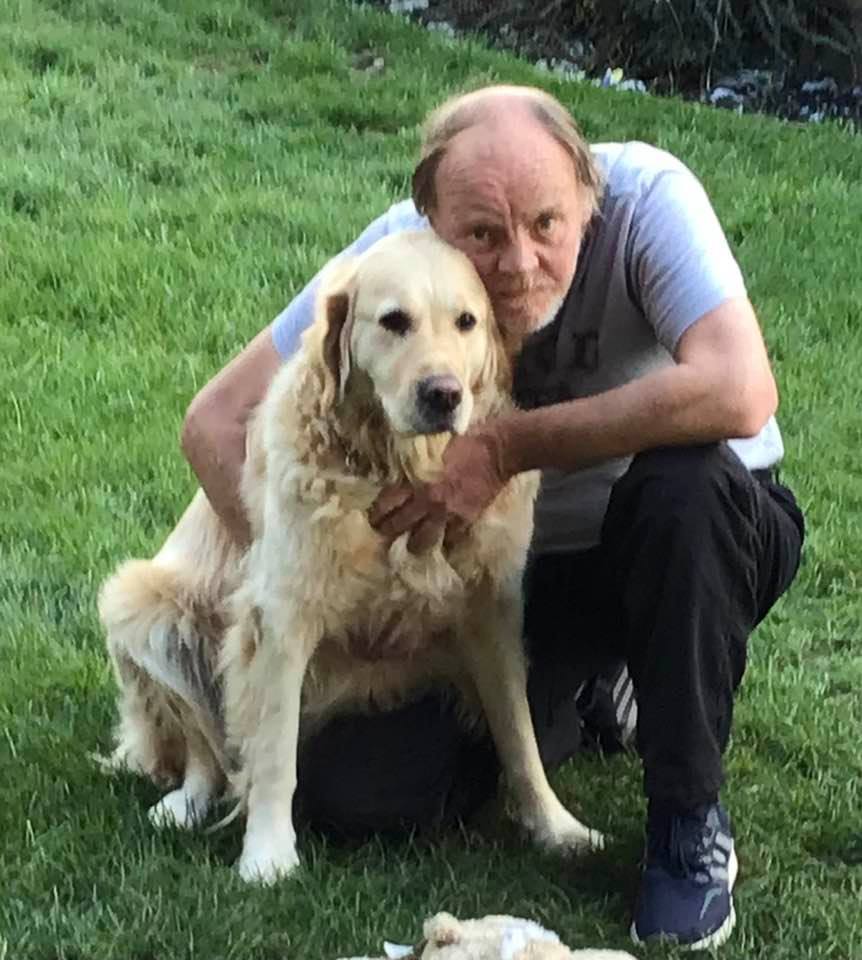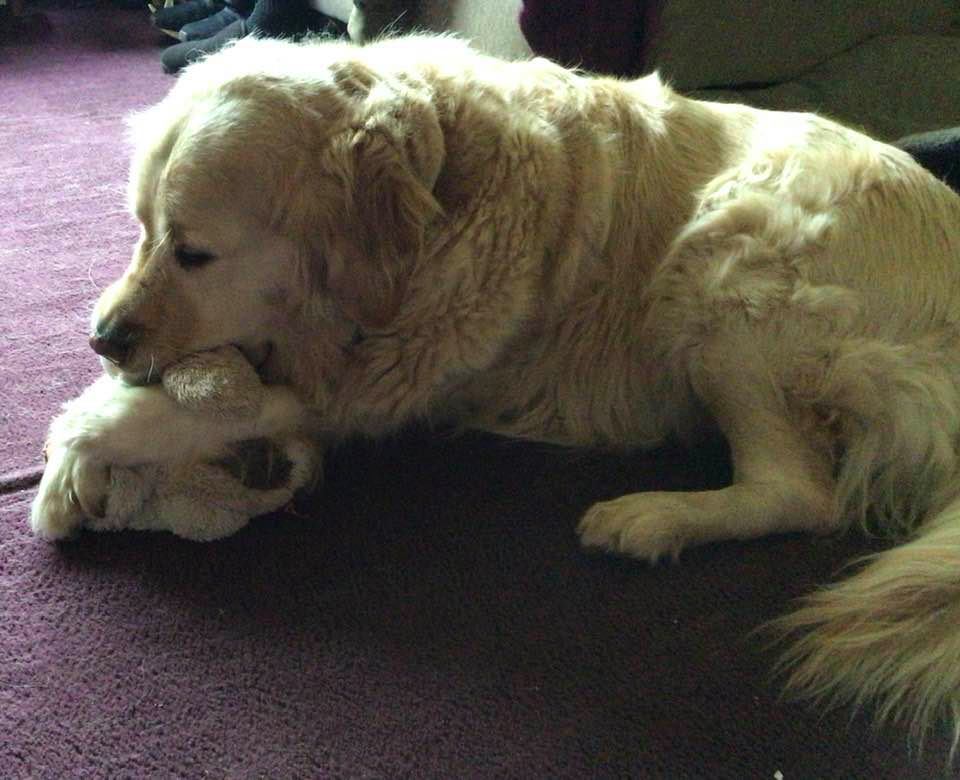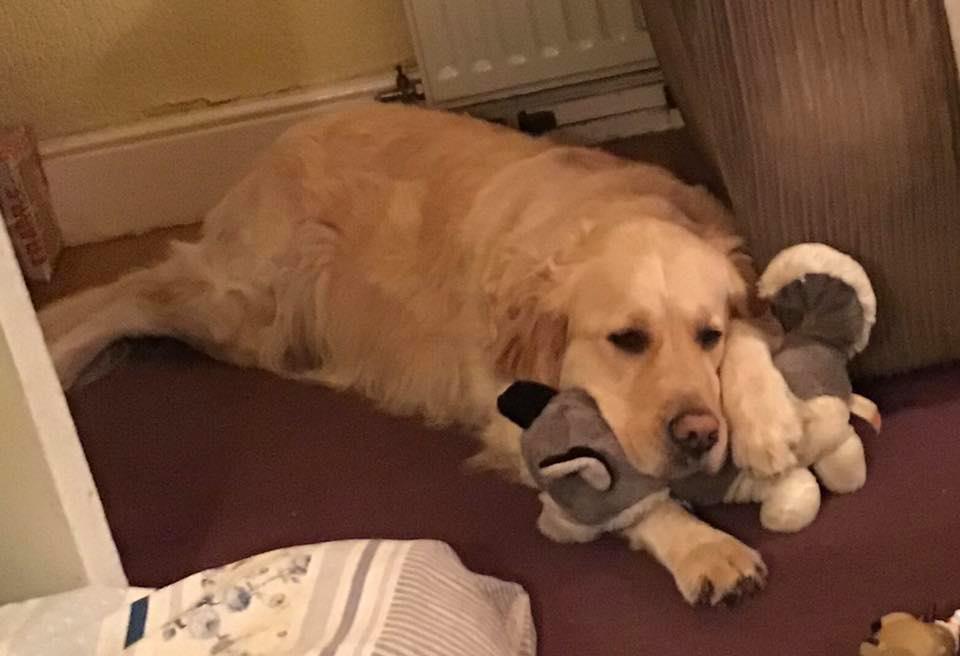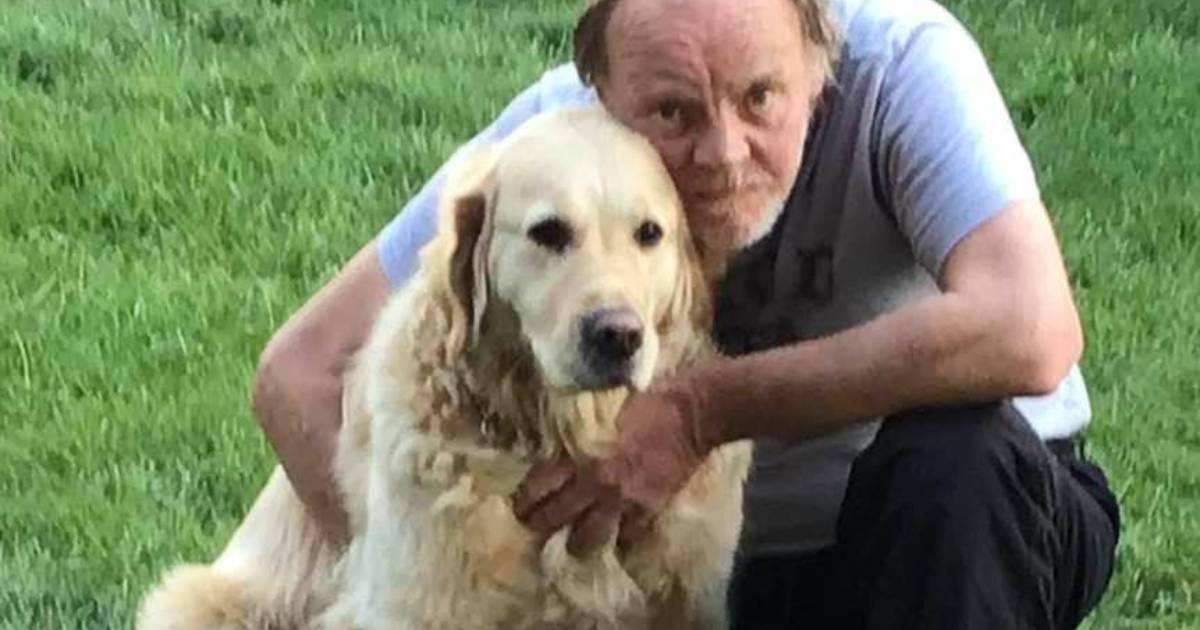Roger Debman suffered two heart attacks and a stroke in 2008 that left him legally blind. The 60-year-old relies on his guide dog Peter to comfortably navigate the world.
Currently, though, Peter is not with Debman. The Golden Retriever was put into foster care by the organization that trained him, Guide Dogs, after failing to meet weight guidelines.

While Guide Dogs insists they’re looking out for Peter and his handler’s best interests, Debman claims they’ve taken his dog away unjustly.
The Controversial Weight Guidelines
According to organization standards, Peter needed to maintain a weight of 40 kgs (~88 pounds.) Guide Dogs insisted on bi-monthly weigh-ins, which Debman and Peter consented to.
Even after Debman increased his exercise and managed the dog’s food intake, Peter still didn’t lose the weight fast enough to meet the organization’s requirements. He got down to around 49 kgs (108 pounds.)
“Peter’s gone from being a juvenile to a young adult, with doing that he’s grown and put on weight. I don’t think he’s overweight, you can see he’s got the most beautiful shape. It might sound daft but he maintains his body weight beautifully. He’s maintaining it at 49-49.5kgs but according to guide dogs that’s overweight,” Debman said.

In addition to taking issue with the seemingly arbitrary weight guidelines, Guide Dogs insists upon, Debman resents the way they’ve enforced them. He and his wife have worked hard to get Peter to lose the weight, they say.
“When Guide Dogs come round they interrogate you like the secret police. Peter is two inches taller than the national average [for Golden Retrievers]. If you don’t know the height, length and width of a dog, how can you know an optimum weight for one?”
According to Guide Dogs chief veterinary officer Tim Davies, the rules are enforced on an individualized basis. Their veterinarians assess the dogs for health concerns, and they found Peter to be overweight.
“We assess all our dogs as individuals, taking into account factors such as age, height and breed and working closely with independent vets. In Peter’s case both our staff and Mr. Debman’s vet used the body conditioning score used by all animal professionals to determine his ideal condition.”

One thing that makes this ordeal especially difficult for Debman is that he suffers from a brain injury that makes stress unmanageable. Debman’s wife Debra has been handling much of the back and forth with Guide Dogs about Peter.
“It’s been a traumatic time not only for me but for Peter as well, he’s just getting through it. I’m disgusted by it, it’s been really upsetting.”
Excessive Response Or Legitimate Health Concern?
Debman and his wife argue that Guide Dogs’ handling of this situation borders on aggressive. In the organization’s defense, Guide Dogs’ Davies explained that Peter’s health benefits all parties:
“We want to create long-lasting and successful guide dog partnerships, and this is ultimately what we want to achieve for Mr. Debman and Peter.”

Davies also explained that maintaining their guide dogs’ health is “absolutely paramount” and that Peter will be returned to Roger once he’s lost some weight.
“We understand this is a difficult situation, but with Mr. Debman’s agreement, we temporarily placed Peter with a fosterer to help him lose weight and be healthy. Unfortunately Peter was significantly overweight.”
Guide Dogs provides the Debmans with updates on Peter in foster care. Still, he may be there for a few months. For now, that leaves Debman without a guide dog.
